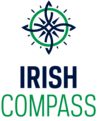Fashion & Retail

Fashion & Retail
Working in the fashion industry can be broken into three main categories: business owning, management/administration, and sales. Through the collaboration of those three categories, retailers direct products and services towards end-users through a supply chain which employs designers, buyers, merchandisers, planners, and general corporate functions such as finance, IT, and marketing.
The fashion and retail industry is a complex and diverse field. It involves the selling of all types of physical goods -- more than 25 million people in the U.S. are employed by retailers. The retail field consists of supermarkets, department stores, chain stores, specialty stores, variety stores, franchise stores, mail-order houses, online merchants, and door-to-door sellers. Retail stores buy their goods from wholesalers, stock the goods, and resell them to individual consumers in small quantities.
The manufacturing side of the industry includes workers who produce apparel such as those who use patterns to cut a variety of textiles into apparel's individual pieces, and assemblers, sewers, pressers, and inspectors to create the apparel from the textile pattern pieces. Clothing production also requires the support of workers that include fashion designers to design the article of clothing; pattern-makers to draw and construct a pattern for the garment based on the designer's specifications; merchandisers and retail buyers who place the apparel in stores; and retail salespeople who sell the finished garment to consumers.
Job Title Examples:
- Fashion Designer
- Retail Buyer
- Fashion Illustrator
- Merchandiser
- Fashion Stylist
- Fashion Public Relations
- Art Director
- Market Researcher
Skills Needed:
- Attention to detail
- Business Knowledge
- Communication skills
- Creativity
Find Opportunities

Using IrishCompass, LinkedIn, and ND’s alumni association directory called myND is the best way to start on the networking front.
Job Databases:
Please note, it’s common for companies in this industry to post directly to their own website’s employment pages - it’s recommended to also check these for opportunities.
- Fashion and Apparel Jobs
- Retail Jobs
- Textile Industry Jobs
- General Consumer Products Jobs
- Wholesale Jobs
- Handshake
Industry Timeline
It is important to note that this industry may not be as active during the standard on-campus recruiting periods. Employers in these fields may operate on a different schedule based on full-time and internship needs. It is critical to know when your target companies will be conducting interviews so researching the company early in the process is essential.
Applying and Interviewing
Resume
Your resume will often be the first impression for a potential employer. You want to make sure that your resume is concise, direct, and specific. Ensure that your resume is tailored for the position and for the industry. Highlighting relevant coursework can demonstrate your fit for a particular position. Review our guide on resumes for more information on how to construct one.
Cover Letters
A cover letter introduces you to a potential employer. Use the position description to make specific connections between your skills and experience and what the organization is looking for in a candidate. The cover letter should be concise and well-written—if a potential employer reads your cover letter and is intrigued, they will then read your resume. Your cover letter should not repeat your resume verbatim, but enhance it. Together the cover letter and resume can help land you an interview. Review our guide on cover letters for more information on how to construct one.
Interviewing
Most interviews will contain a mixture of resume based questions (questions about your past experience) and behavioral based questions (your ability to handle prospective situations at work. Most positions will begin with an interview that has a mix of these questions. Review our guide on common interview questions.
Preparation is extremely important for interviews. Research the company/organization, current and previous projects they’ve worked on, and even the people that you’re interviewing with. This will not only help provide talking points but will show your knowledge and genuine interest in the position. Utilize our resources on how to best prepare yourself to excel in your interview.
Portfolio
Depending on the employer and career you’re pursuing, a portfolio may be required. Being able to show work examples is a key component when preparing to interview. The Advertising Industry, most of the time, requires a robust portfolio including specific examples of writing, design, campaigns, and other relevant work to the industry. Tailoring your portfolio to the kind of work that the company that you’re applying to is important.
An online portfolio is a great resource to build over time that visually displays the work that you have done. There are several online platforms to build your own website such as square space or wix. Having a well made online portfolio or website will help you to stand out and provide employers easy access to view your work.
Online Resources
Explore:
Professional Associations:
- Center for Women's Business Research
- National Retail Federation
- Retail Industry Leaders Association
- Entertainment Software Association
- Fashion Group International
- American Apparel and Footwear Association
Resources and Databases:
Campus Resources
Meet with a career counselor
Schedule an Appointment
Student Clubs:
Employer Examples:
- Adidas
- Hermes
- Nike
- Macy’s
- Lululemon
- Calvin Klein
- Levi Strauss & Co.
Join Handshake:
Personalize your feed, explore your curiosities, and get updates that matter to you. Handshake is a dynamic system that works to match students with the most relevant resources and opportunities offered by our office including:
- Access to personalized job recommendations – This is based on major, career interests, and profile information such as skills and experiences. When students fill out their profile, they’ll be able to see jobs and internships that match their interests and skills.
- Ability to schedule one–on-one counseling appointments – Counseling appointments are able to be scheduled through Handshake and held virtually via Zoom.
- Ability to Interact with employers – Students can research contact information for local and national employers. Employers can also message students with opportunities and information.
- Connect with students across the country - Students can interact with their peers through messaging, get tips and advice, as well as network.
- Search for and apply to open positions - On Handshake, students can see jobs and internships posted specifically for them as well as employers actively recruiting from Notre Dame.